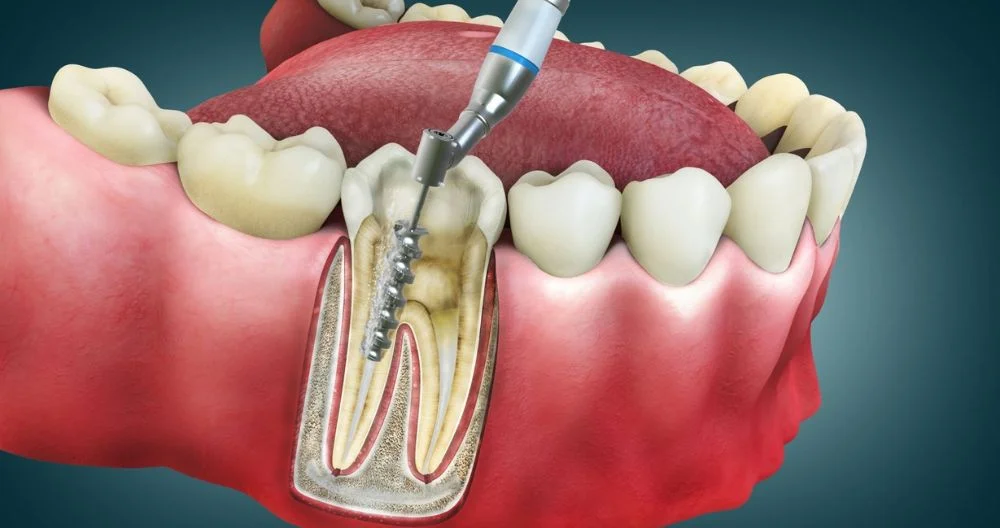What is a Root Canal?
When your tooth starts sending SOS signals through pain or sensitivity, it might be time to talk about root canals. This procedure comes into play when a tooth’s pulp, its innermost layer, becomes inflamed or infected. This can be due to a variety of reasons such as deep decay, cracks, chips, or even trauma. A root canal aims to save the tooth by removing the troubled pulp, cleaning the tooth’s inner chambers, and sealing it to prevent future mischief from bacteria.
What Causes Root Canal?
The main reason a tooth’s inner sanctuary might need a root canal is due to infection or inflammation. This can arise from:
Prolonged tooth decay that hasn’t been stopped in its tracks.
Injury to your tooth, like fractures or breaks, can create an open door for bacteria to enter and set up camp.
Previous dental work that may stress the tooth, or extensive procedures on the same tooth.
How to Avoid Root Canal?
While not all root canals can be prevented, here are some proactive steps to minimize your risk:
Maintain a stellar oral hygiene routine with thorough brushing and flossing.
Make it a habit to see your dentist for regular exams and cleanings.
Protect your teeth against injuries by wearing a mouth guard during sports.
Treat early signs of tooth decay or damage promptly to prevent escalation.
Does Root Canal Hurt?
Thanks to the leaps in dental technology and local anesthetics, root canals today are performed with minimal discomfort. During the procedure, you may experience a sensation of pressure, yet it typically isn’t painful. Discomfort following the treatment can generally be alleviated with common pain relievers found at the pharmacy.
What is a Root Canal and Crown?
Once the root canal is complete, the tooth usually requires a crown to reclaim its robustness and aesthetic appeal. The crown acts like a cap, reinforcing the tooth and ensuring it can handle the daily grind of biting and chewing.
What is Root Canal Treatment?
Root canal treatment is the process of saving a tooth by meticulously removing the damaged or diseased pulp, cleaning the internal hollows, and sealing it to block out bacteria. It’s a tribute to the advancements in dental care that enables the preservation of your natural tooth for the longest possible time.
Root Canal Treatment Steps
The steps of a root canal are performed with precision and care:
An X-ray to assess the extent of damage.
The area is numbed with local anesthesia. A small entry is created in the tooth’s crown to reach the pulp. This pulp is then extracted, and the resulting cavity is sanitized and contoured. The cavity is then packed with a material compatible with the body. A provisional filling is applied to seal the tooth until a permanent crown is prepared and positioned.
Root Canal Treatment Side Effects
Post-treatment, you might encounter a few temporary side effects such as:
Some discomfort or mild pain, as your tooth may be sore after the procedure.
Inflammation in the gums near the affected tooth.
A slight discoloration of the tooth over time, which can be addressed cosmetically.
Root Canal Recovery Time
Recovery from a root canal is typically swift. Most folks are back to their usual routines the next day. The key is to follow your dentist’s aftercare instructions to the letter for a smooth recovery.
Final Words
At AZ Dental Club, AZ, we’re committed to making your root canal experience as comfortable and effective as possible. We use the latest techniques to ensure your procedure is a success and offer a compassionate approach to care that addresses all your concerns. With our expert team, advanced technology, and patient-centered service, we’ll guide you through the process and help you recover quickly, so you can get back to enjoying life with a healthy smile.
If you’re experiencing tooth pain or have been told you might need a root canal, don’t hesitate to contact us or Schedule an Appointment. Let AZ Dental Club be your partner in achieving and maintaining optimal oral health.

